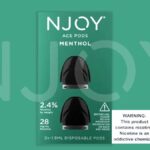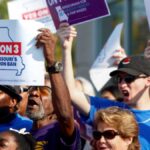- Home
- Billionaires
- Investing Newsletters
- 193CC 1000
- Article Layout 2
- Article Layout 3
- Article Layout 4
- Article Layout 5
- Article Layout 6
- Article Layout 7
- Article Layout 8
- Article Layout 9
- Article Layout 10
- Article Layout 11
- Article Layout 12
- Article Layout 13
- Article Layout 14
- Article Sidebar
- Post Format
- pages
- Archive Layouts
- Post Gallery
- Post Video Background
- Post Review
- Sponsored Post
- Leadership
- Business
- Money
- Small Business
- Innovation
- Shop
Recent Posts
Boeing to Avoid Criminal Charges in $2.5B Settlement

Boeing’s avoidance of criminal charges in the aftermath of the $2.5 billion settlement linked to fatal crashes involving the 737 Max 8 model in 2018 and 2019 has raised significant attention. The Justice Department’s decision, as reported by The New York Times, indicates a shift towards a deferred prosecution agreement. This move is a departure from a potential criminal prosecution, deemed “too legally risky” by department officials. Under the proposed agreement, Boeing would be required to establish an independent government watchdog to oversee safety and quality control, a strategy aimed at ensuring future compliance.
The Justice Department’s ability to pursue Boeing for criminal charges stems from the company’s violation of its 2021 prosecution agreement. This violation, related to the failure to implement a compliance and ethics program to detect and prevent potential fraud violations, has prompted the department to seek alternative measures to enforce safety standards. Installing a federal monitor to supervise safety improvements is seen as a more effective way to compel Boeing to adhere to safety and quality control standards, according to sources cited by The New York Times.
The anticipated settlement offer, expected to be presented to Boeing soon, marks a significant development in the ongoing saga. Despite the impending agreement, Boeing and the Justice Department have refrained from commenting on the matter. This latest development comes on the heels of Boeing’s previous $2.5 billion settlement, which included compensation for airline customers, a fund for crash victims, and a criminal penalty. The 2021 settlement followed accusations of conspiracy to defraud the FAA, highlighting Boeing’s misleading statements regarding the Maneuvering Characteristics Augmentation System (MCAS) on the 737 Max. This failure to disclose crucial information may have contributed to the Indonesia and Ethiopia crashes, which claimed 346 lives combined.
Recent Posts
Categories
- 193cc Digital Assets2
- 5G1
- Aerospace & Defense43
- AI32
- Arts3
- Banking & Insurance11
- Big Data3
- Billionaires211
- Boats & Planes1
- Business300
- Careers13
- Cars & Bikes66
- CEO Network1
- CFO Network17
- CHRO Network1
- CIO Network1
- Cloud10
- CMO Network18
- Commercial Real Estate7
- Consultant1
- Consumer Tech150
- CxO1
- Cybersecurity50
- Dining1
- Diversity, Equity & Inclusion4
- Education7
- Energy8
- Enterprise Tech29
- Events11
- Fintech1
- Food & Drink2
- Franchises1
- Freelance1
- Future Of Work2
- Games132
- GIG1
- Healthcare74
- Hollywood & Entertainment152
- Houses1
- Innovation37
- Investing2
- Investing Newsletters4
- Leadership65
- Lifestyle10
- Manufacturing1
- Markets20
- Media180
- Mobile phone1
- Money13
- Personal Finance2
- Policy537
- Real Estate1
- Research6
- Retail1
- Retirement1
- Small Business1
- SportsMoney21
- Style & Beauty1
- Success Income1
- Taxes2
- Travel10
- Uncategorized6
- Vices1
- Watches & Jewelry2
- world's billionaires181
Related Articles
Trump Secures 2024 Presidency After Key State Wins
Former President Donald Trump has won the 2024 presidential race, according to...
By 193cc Agency CouncilNovember 6, 2024Harris’ Path to Victory Narrows as Trump Wins Key States
In the latest developments of Election Day 2024, Vice President Kamala Harris...
By 193cc Agency CouncilNovember 6, 2024Abortion Ballot Results: Florida Rejects, Arizona Approves
In a significant series of votes on abortion rights across the U.S.,...
By 193cc Agency CouncilNovember 6, 2024Philadelphia Officials Reject Trump’s Voter Fraud Claims
Former President Donald Trump recently asserted that Philadelphia is plagued by “massive...
By 193cc Agency CouncilNovember 6, 2024















Leave a comment